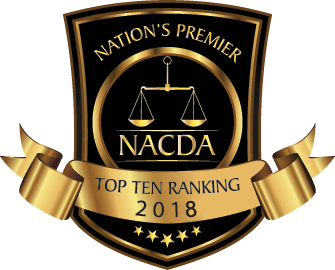Prosecutions for criminal drug offenses in Illinois usually occur under the Cannabis Control Act or the Illinois Controlled Substances Act. These charges can be either misdemeanors or felonies. Charges under the Illinois Controlled Substances Act, however, are more likely to be felonies.
Despite the increased likelihood of receiving a felony charge under the Controlled Substances Act, first-time offenders still have reason for optimism. First-time drug offenders can be sentenced to special probation under Section 10 of the Cannabis Control Act or Section 410 of the Illinois Controlled Substances Act.
- Section 10 (720 ILCS 550/10) Probation: Available for some first time cannabis offenses. The probation period runs for a term of 24 months. Successful completion of the probation period will allow the offender to avoid a conviction.
- Section 410 (720 ILCS 570/410) Probation: Available for some first time offenses under certain controlled substance statutes. The probation period runs for a term of 24 months. Successful completion of the probation period will allow the offender to avoid a conviction.
Successful completion of first-time offender probation can involve the following:
- Drug screens;
- Counseling;
- Securing or maintaining employment;
- Successful completion of an education program; and
- Payment of court fees and costs.
Immigration status and first-time offender probation
Some felony and misdemeanor convictions can prevent permanent resident aliens from remaining in the United States, even if they have not served jail time, are married to a U.S. citizen, or have children with U.S. citizenship. Additionally, meaning of “conviction” under immigration law differs from the meaning of “conviction” under Illinois criminal law. The term conviction means, with respect to a non-citizen:
a formal judgment of guilt of the alien entered by a court or, if adjudication of guilt has been withheld, where—(i) a judge or jury has found the alien guilty or the alien has entered a plea of guilty or nolo contendere or has admitted sufficient facts to warrant a finding of guilt, and (ii) the judge has ordered some form of punishment, penalty, or restraint on the alien’s liberty to be imposed.
The differing meanings of “conviction” are important when a non-citizen receives section 10 or 410 probation because first-time offenders must enter a plea of guilty or be found guilty before being placed on probation. Upon successful completion of a Section 10 or Section 410 probation period, a first time offender will not have a conviction under Illinois criminal law. However, receipt of Section 10 or Section 410 probation still counts as a conviction for immigration purposes.
Are you facing a felony drug conviction?
If you are facing felony drug charges and you do not have a prior criminal record, first offender probation may help you avoid a conviction that could disrupt your life. A probation lawyer can explain to you how these first-time offender programs work, the benefits they offer, and what steps to take to become eligible for Section 10 or Section 410 probation.
Contact a probation lawyer at John Paul Ivec, Attorney At Law, P.C.
To schedule a free initial consultation, call 815.439.9909, or if you prefer click here to contact by email.







